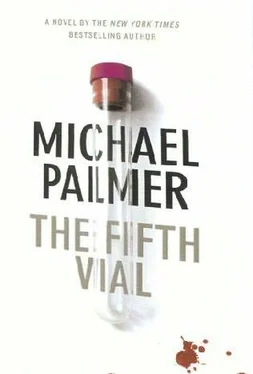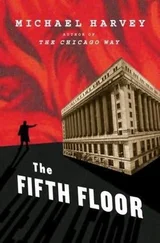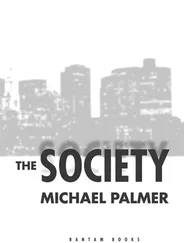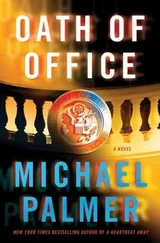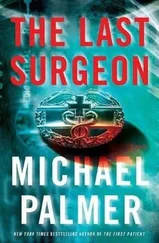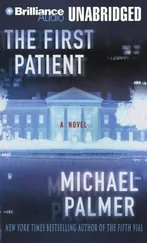Michael Palmer - The fifth vial
Здесь есть возможность читать онлайн «Michael Palmer - The fifth vial» весь текст электронной книги совершенно бесплатно (целиком полную версию без сокращений). В некоторых случаях можно слушать аудио, скачать через торрент в формате fb2 и присутствует краткое содержание. Жанр: Триллер, на английском языке. Описание произведения, (предисловие) а так же отзывы посетителей доступны на портале библиотеки ЛибКат.
- Название:The fifth vial
- Автор:
- Жанр:
- Год:неизвестен
- ISBN:нет данных
- Рейтинг книги:4 / 5. Голосов: 1
-
Избранное:Добавить в избранное
- Отзывы:
-
Ваша оценка:
- 80
- 1
- 2
- 3
- 4
- 5
The fifth vial: краткое содержание, описание и аннотация
Предлагаем к чтению аннотацию, описание, краткое содержание или предисловие (зависит от того, что написал сам автор книги «The fifth vial»). Если вы не нашли необходимую информацию о книге — напишите в комментариях, мы постараемся отыскать её.
The fifth vial — читать онлайн бесплатно полную книгу (весь текст) целиком
Ниже представлен текст книги, разбитый по страницам. Система сохранения места последней прочитанной страницы, позволяет с удобством читать онлайн бесплатно книгу «The fifth vial», без необходимости каждый раз заново искать на чём Вы остановились. Поставьте закладку, и сможете в любой момент перейти на страницу, на которой закончили чтение.
Интервал:
Закладка:
I am willing to risk anything.
Did she really feel that way, she wondered now. Did she really not care to see her life play out — to learn her destiny?
Before the answer became any clearer, a shot rang out, and an instant later, a siren began wailing from not far away. Without hesitating, Natalie activated the stopwatch mode on her wristwatch and sprinted forward to the shed, slipped inside, and dropped to one knee, breathing heavily. In moments, the siren stopped. By then, she had located the heavy wooden trapdoor and swung it open. Eight stairs led down to a concrete floor that crossed over to the hospital — maybe a hundred feet, she estimated.
She followed the flashlight beam to the far end of the tunnel, mounted the ladderlike stairs to the trapdoor, and pushed it open, struggling to maintain control of it. Above her, she hoped, Santoro and the policeman Barbosa had left the hospital and, guns drawn, were cautiously searching the grounds and the forest beyond.
The heavy aroma of mixed spices and foods told her that Luis had once again been absolutely accurate. She cut the flash and pushed herself up into a rather large, cluttered space, twelve by twelve, stocked floor to ceiling with food and supplies, and faintly lit through a glass panel in the door. Closing the trapdoor and replacing the mat that covered it, she crawled quickly across the dining area and lounge. The room was airy and comfortable, with seating for twenty-five — ten more counting the lounge. For the moment, the entire area was dimly illuminated from the corridor beyond the wide, open arched doorway to the hospital. When she reached that arch, she paused just long enough to listen, then moved ahead. From what Luis had said, there was no sense in checking either of the small examination rooms to her right, so she moved down the main corridor.
The two nearly identical recovery rooms were small but well appointed with state-of-the-art, wall-mounted monitors and electronic IV infusion pumps. One glance at the crucifix over the door of the first room, and the clock on the wall to the right of it, and Natalie knew that she had been in that room before. So much for Santa Teresa. There were no filing cabinets in either room, nor did she expect there to be.
Four minutes.
The first operating room was incredibly large and technologically well equipped, with a cardiopulmonary bypass machine and elegant operating microscope. Between it and the next OR was the prep room where the surgeons and OR nurses scrubbed in. The second OR had no bypass ma-
chine, and less sophisticated equipment. Natalie felt certain that this was the room where her lung was removed. The questions resonated louder and louder. How did she get here from Rio? Why was her damaged lung removed, and not the good one? And perhaps most perplexing, why was she allowed to live?
Seven minutes.
The solid doors of the two offices to the left of the second OR were both locked. One was labeled with a bronze plaque reading DR. XAVIER SANTORO, and the other departamento da cirurgia — department of surgery. Natalie felt herself sink. She had eleven minutes left, thirteen at the outside, before Luis feared he would not be able to maintain his diversion, and the records she was seeking, if in fact such records existed, were almost certainly behind one of those two locked doors. Was it worth trying to break one of them down? She hesitated, aware that the seconds were ticking past. Finally, almost in spite of herself, she moved on to the final room off the hallway — the electronics room, as Luis had described it. The door, like of the other offices, was closed. The brass plaque read simply, DR. D. CHO.
Ten minutes.
Expecting the worst, and prepared to race back to the pantry, Natalie tried the knob. The door swung open. She stepped inside and closed it be hind her before turning on the flash. A quick scan showed no windows, so she found a switch on the wall by the door and flipped it on. Instantly, brilliantly bright fluorescent light filled the room, which would have been un- like any she had ever seen were she not suddenly and absolutely convinced that she had been there before — many times before.
Screens, electronics, and speakers were on every wall. In addition, there was a glass cabinet of medications. The focus of the room was the chair Luis had described — plush leather with a number of segments that were all adjustable. Hanging down over the elaborate setup, on a heavy adjustable steel arm, was a thick, square, full-head helmet made of some sort of metal. Attached to it was a smoky black plastic visor. Several cables, dangling down from the ceiling, were connected to each. Natalie pictured herself clearly, being transferred from a stretcher to the chair. She imagined, no, recalled, the helmet being slipped into place, and the visor being pulled down.
Virtual reality. Natalie was certain of it. The room was set up to create and implant situations that had never really happened. And since her scar, X rays, and diminished pulmonary function were all quite real, the scenario that resulted in her surgery had to have been what was manufactured.
Fourteen minutes.
Natalie rushed to the desk, which was strewn with papers and letters, all of which were addressed to Dr. Donald M. Cho at either a post office box in Rio, or one in New York City. She folded several of the more interesting looking ones and stuffed them into her pocket. Then, one letter caught her eye. Actually, it was a fax to Cho, written in English, from Cedric Zhang, Ph.D., Psychopharmacologist, Audio-Visual Implantationist.
Transfixed, despite the crush of time, Natalie read the note.
Dear Dr. Cho:
I was so pleased to learn how successfully you have adapted my methods for the implantation of virtual scenes into the minds of your subjects. As you have discovered, the potential for my theories and equipment is limitless. We are clearly geniuses, you and I, and are now in possession of a technique that can quite literally change the world. Over a short course of treatment, witnesses can be programmed to testify that they saw or did not see whatever we wish. Agents and soldiers can relent in the face of torture, and give out implanted information they absolutely believe is true. The modifications you have made and tested, especially the addition of electrodes that produce legitimate sensations of pain, heat, and cold, are brilliant. I suggest we meet at your earliest convenience after your return to New York.
With deepest respect,
Cedric Zhang, Ph.D.
Seventeen minutes.
The circle of confusion was beginning to close. Natalie knew now that she had never been shot. The last real thing that happened to her was the injection into the base of her neck. The recurrent nightmares were nothing more than glitches in the system created by a Dr. Cedric Zhang and modified by Dr. Donald Cho. She still had questions, piles of them, but some of the most disturbing ones had just been answered. Somewhere in the room, she felt certain, was a DVD or film of some sort showing, from her point of view, the attack and ultimately the gunshots that brought her down — gunshots that had never happened except through the lens of a camera.
Nineteen minutes.
Clutching her flashlight, her pockets stuffed with hastily folded papers, Vargas's gun in her waistband, she flicked off the light and slipped out into the corridor. It was foolish to have stayed so long. If she was caught now, she almost certainly would crumble under the weight of torture and drugs, and give them Luis Fernandes. It had been selfish and foolish of her to stay.
Crouching lower than the windows, she sped down the corridor toward the entrance to the dining room. She had just reached it when the main door to the hospital opened. Without looking back to confirm her impression that it was Santoro, Barbosa, or both, she dove to her right into the family lounge area and flattened herself behind a sofa. The gun was partially pinned beneath her, but she dared not move to get at it. Moments later, the two men entered the room. They were speaking rapidly — too rapidly for Natalie to pick up everything they were saying.
Читать дальшеИнтервал:
Закладка:
Похожие книги на «The fifth vial»
Представляем Вашему вниманию похожие книги на «The fifth vial» списком для выбора. Мы отобрали схожую по названию и смыслу литературу в надежде предоставить читателям больше вариантов отыскать новые, интересные, ещё непрочитанные произведения.
Обсуждение, отзывы о книге «The fifth vial» и просто собственные мнения читателей. Оставьте ваши комментарии, напишите, что Вы думаете о произведении, его смысле или главных героях. Укажите что конкретно понравилось, а что нет, и почему Вы так считаете.
